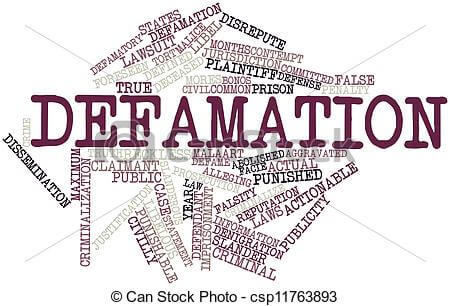Introduction to False Light Invasion of Privacy
False light Invasion of Privacy is when someone has falsely attributed to you some statement, opinion, or belief which is highly offensive. The elements for false light are:
- a statement;
- published by one party about another;
- that places a person in a false light;
- which is highly offensive to a reasonable person; and
- the speaker published it with knowledge of its falsity, or with reckless disregard to whether it was truthful or not.
The key to recognizing false light is when something is misattributed to someone who should rightly respond with a great deal of anguish at the mischaracterization.
Much of the Internet mirrors society as we know it. As people say and do mean things to and about one another out in the real world, people do the same on the web. Much of the objectionable content on the Internet is permitted (if not appreciated), there are at least a couple causes of action towards which the targets of ill-will can turn for help. The privacy torts of Defamation and False Light Invasion of Privacy are state tort claims which, although similar, they are distinguishable in significant ways and both are valuable tools for victims of online abuse. It is important to note that several states do not recognize the tort of False Light because they find it too resembles Defamation and imposes too strict limitations on free speech.
Defamation
Defamation is a catch-all term. It’s for false statements made to a third-party which damages someone’s reputation. There are two types of defamation: slander (spoken), and libel (written).
To prove a claim for defamation, you must generally establish:
- some statement is false;
- published to a third-party;
- the speaker is at fault (knew, or should have known, it was false);
- the subject of the statement suffered an injury (usually economic); and
- the statement was not privileged.
Privileged Statements
Privileged statements are those that the law immunizes even though the other defamation elements may be satisfied. For instance, if you testify in court, that statement is privileged. (But, if you knew it was false, you could be criminally liable). First Amendment considerations must be addressed with dealing with defamation claims. Public figures and matters of public importance have less protection. Plaintiffs must prove a greater degree of fault to for a claim to be actionable. For example, a gossip column’s story about George Clooney lighting his grandmother on fire. Though false, it would only be actionable as defamation if the speaker was grossly negligent in making the statement. This rationale holds true because George Clooney a public figure. The courts have found that information about public figures is more important to society, so the courts relax the barriers to speech. This is for fear of stifling speech on matters of public interest.
False Light vs Defamation
Defamation and False Light invasion of Privacy have a good deal in common. Each requires some falsity published to a third party. A fundamental difference is that Defamation is generally a false statement made about a person, and False Light is a misattribution of a person’s actions or beliefs. Moreover, defamation must be false, whereas False Light torts need only be misleading (and they must be offensive). For instance, if an article about sex offenders in the community includes a smiling photo of you, and people could conclude that your smiling face demonstrates your endorsement of the criminal conduct. You might have a False Light action due to the photo’s misleading context which mischaracterizes your opinions or beliefs.
Truth and Opinions
Two important things to understand about the limits of Defamation are that:
- truthful statements cannot be defamatory no matter how damaging they are to someone’s reputation; and
- opinions are, in general, not defamatory because they cannot be true or false.
For instance, someone writes a review on YELP! calling your business “terrible”. This is not defamatory because the reviewer is stating his/her opinion of your business. They have not set out concrete, refutable facts. If he/she says your business is “terrible because it’s infested with rats,” that is actionable defamation – so as it isn’t true!
Internet Lawyers
Defamation and False Light Invasion of Privacy claims can be tricky. It is important to be sure to hire an attorney who understands the subtle distinctions between the laws and who can help you determine how to best pursue your legal rights. Contact Revision Legal’s team of experienced defamation attorneys through the form on this page or call 888-395-1579.
Editor’s Note: this post was originally published in May, 2014. It has been updated for clarity and comprehensiveness.




